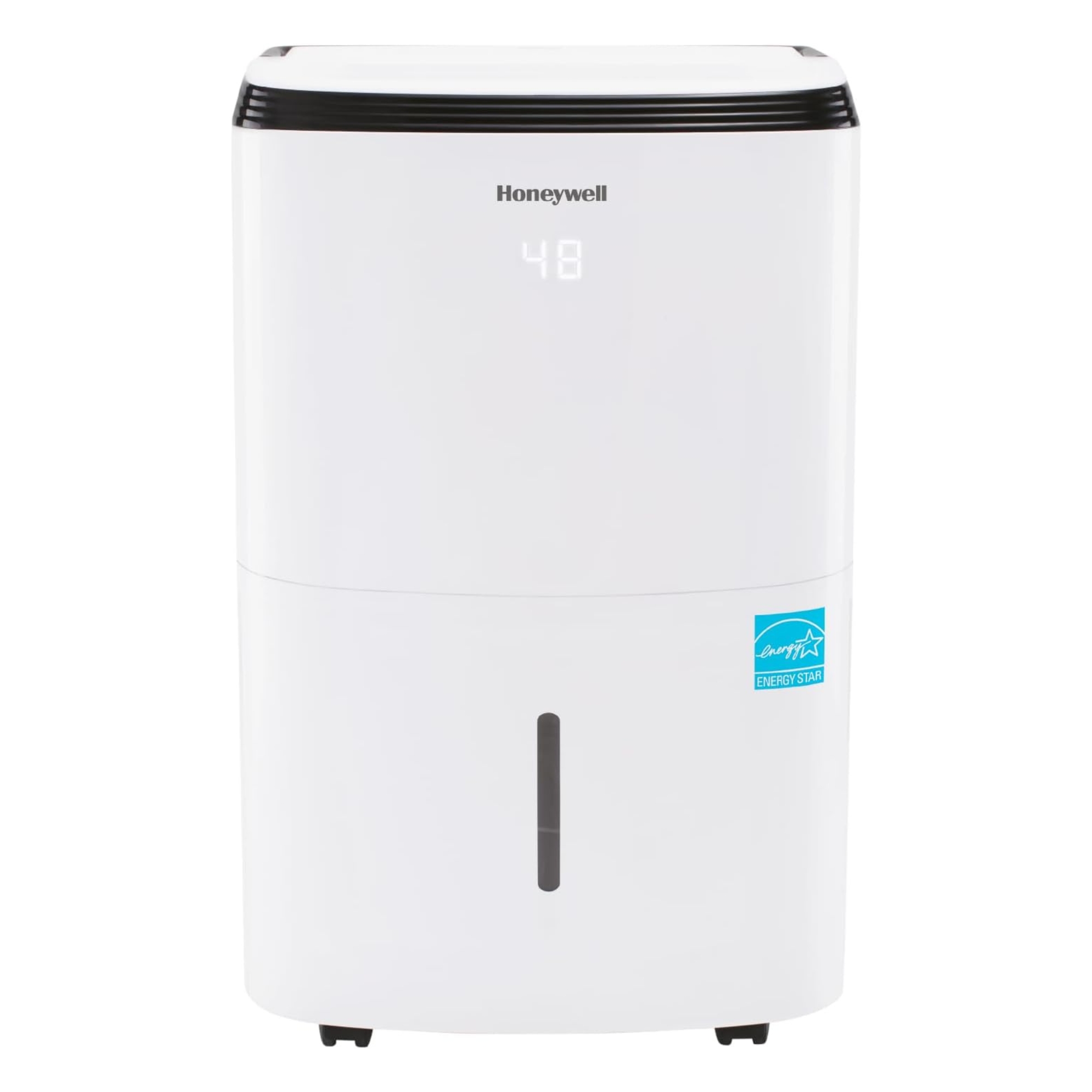What does a dehumidifier do – and does your home need one?
Find out exactly what a dehumidifier does, how they work, and whether you need one for a healthier, safer and more comfortable home
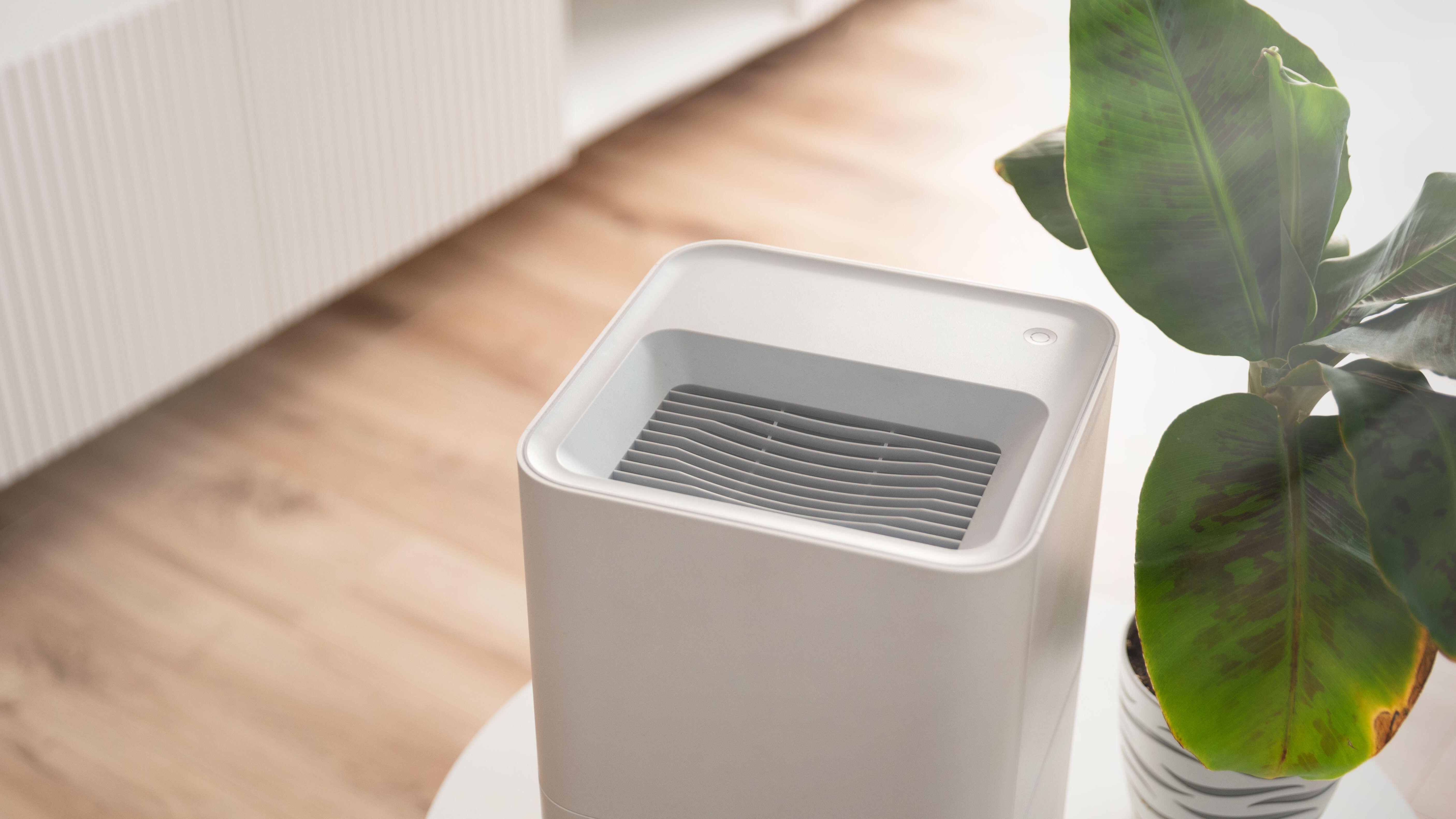
You may have heard of the benefits of a dehumidifier, or perhaps just know of their existence, and have wondered what exactly does a dehumidifier do?
Along with HVAC systems and air purifiers, the best dehumidifiers improve our air quality at home by tackling the humidity levels (or RH, relative humidity) indoors. Doing this can improve your health, protect your property, and create a more comfortable environment in the house.
So, what does a dehumidifier do, and how do they work? We spoke with the experts on dehumidifiers and air quality to find out whether or not you should consider owning one.
What does a dehumidifier do?
Like the name suggests, dehumidifiers lower humidity levels, thus 'dehumidifying' the space. Humidity is caused by water vapor in the air; indoors, this can be caused by boiling water, breathing, and lack of ventilation, whereas outdoors, it's caused by heat evaporating water from bodies of water.
High humidity levels indoors encourage the growth of mold and dust mites, both of which affect our health through triggering viruses and symptoms of allergies and asthma. It's generally a sign of poor air quality when humidity levels become too high.
'Dehumidifiers improve indoor air quality by decreasing the moisture in the air, which may contribute to a stuffy environment, odors, and mold-causing bacteria to linger,' explains Glenn Wiseman, technician and manager at Top Hat Home Comfort Services.
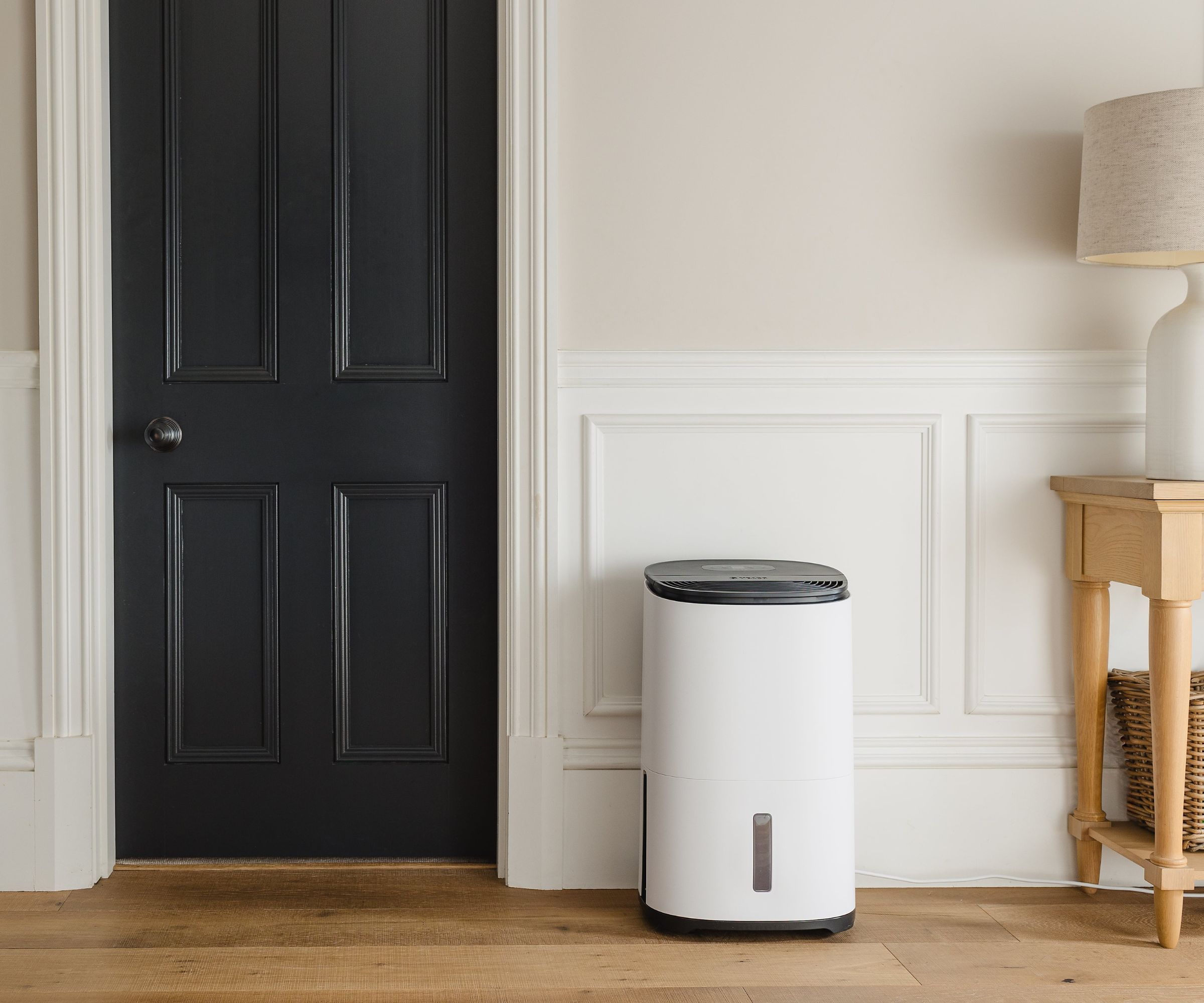
'Most people use dehumidifiers in their homes to extract excess moisture from places that they don’t want it to linger, [helping] to prevent mold growth in areas that are regularly moist like bathrooms, kitchens, basements, crawlspaces and utility rooms,' says Bethany Uribe, dehumidifier expert from ASAP Restoration.
'A dehumidifier also helps to protect property against excess moisture and is commonly used in homes where a subterranean level has trouble with removing excess water vapor from the air,' she adds. 'A mold outbreak can wreak havoc on a building if not addressed quickly, and by preventing mold from having the water it needs to survive, a dehumidifier helps to prevent contamination in the first place.'
As well as providing health benefits and protecting our homes, dehumidifiers make our indoor spaces more comfortable. 'Wet air tends to feel thicker and hold heat more readily than dry air,' says Bethany. Dehumidifiers can make the air feel cooler, less stuffy and generally more pleasant.
According to the EPA, humidity levels (indoor relative humidity, RH) should be between 30-50%. Low humidity levels can dry out the body, particularly the nose, throat and skin, leading to an increased risk of catching viruses. For this reason, dehumidifiers only extract a certain amount of moisture from the air.
How long it will take a dehumidifier to dry out a room will depend on the cause of the moisture, the size of your space, and your dehumidifier.
How does a dehumidifier work?
'Essentially, a dehumidifier pulls water vapor out of the air by condensing it and collecting it in a receptacle,' explains Bethany. '
'A fan takes the wet air and pushes it over evaporator coils. These are filled with a refrigerant condensed liquid. When the wet air passes over the cooler coils, its capacity to hold the moisture is reduced. This then causes the moisture to be deposited through condensation and collected in the reservoir.'
When the reservoir is full of water, it must be emptied either by yourself or through an integrated draining system. It's one of the many things I wish I knew before buying a dehumidifier.
Do you need a dehumidifier?
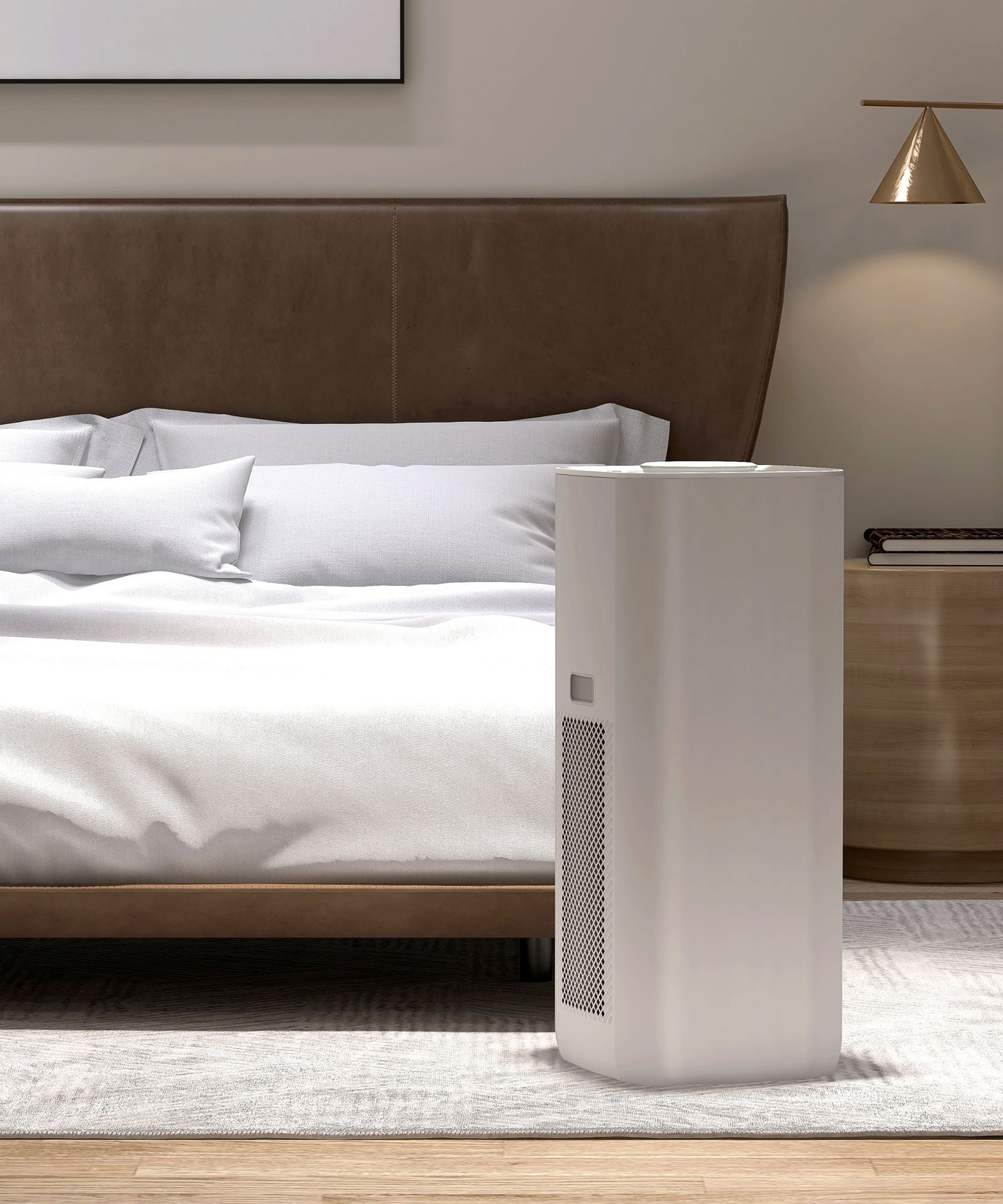
A humidistat will tell you if your humidity levels are too high, but you can generally tell if your air feels warm or stuffy, your sinuses get congested, or there's mold growing. If so, you should consider one, or at least look into DIY dehumidifers.
In the summer, a dehumidifier can make your home a safe space from the outdoor humidity levels, which are at their highest all year. Equally, in winter when we use the heating and dry our clothes indoors, dehumidifiers will remove all of that excess moisture from the air.
Also, as Bethany puts it, certain people should consider investing in one for the sake of their health, one of the more surprising uses for a dehumidifier.
'For people that have compromised immune systems, the elderly, or children, a dehumidifier can help to prevent mold contamination by extracting the moisture that mold needs to grow from the air,' she says. 'It also helps by capturing the mold spores floating around in the air while condensing the water vapor.'
If you do decide to get a dehumidifier, consider what your home needs. If humidity levels are high across your home, it might be worth investing in multiple for the most effective coverage, or, one that can easily be moved from room to room. Consider as well the size of the water tank: the smaller the tank, the more frequently you'll need to empty it.
'If you only have one dehumidifier for your home, place it in the room with the most humidity, usually the basement or the attic. Also, ensure you have an adequate draining system for your model or that the water collection container is level to avoid overflow and spillage once it is full,' advises Glenn.
Learn about the incredible difference a dehumidifier made to our writer's terrible window condensation.
Below are some dehumidifiers I'd personally recommend in a range of sizes and budgets.
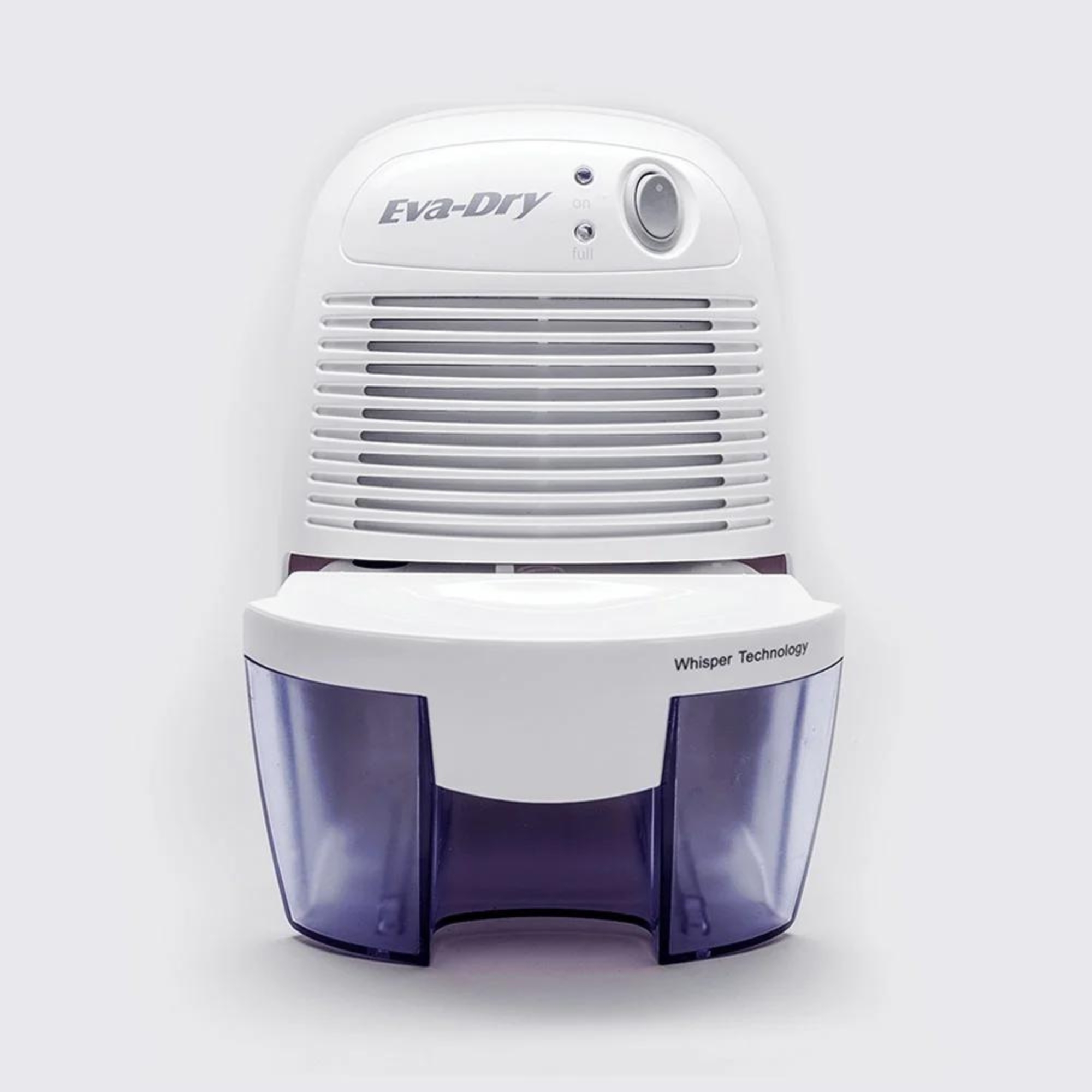
This tiny dehumidifier is ideal if your humidity levels aren't too great. It's small, quiet, and runs on only 22.5 watts of power.
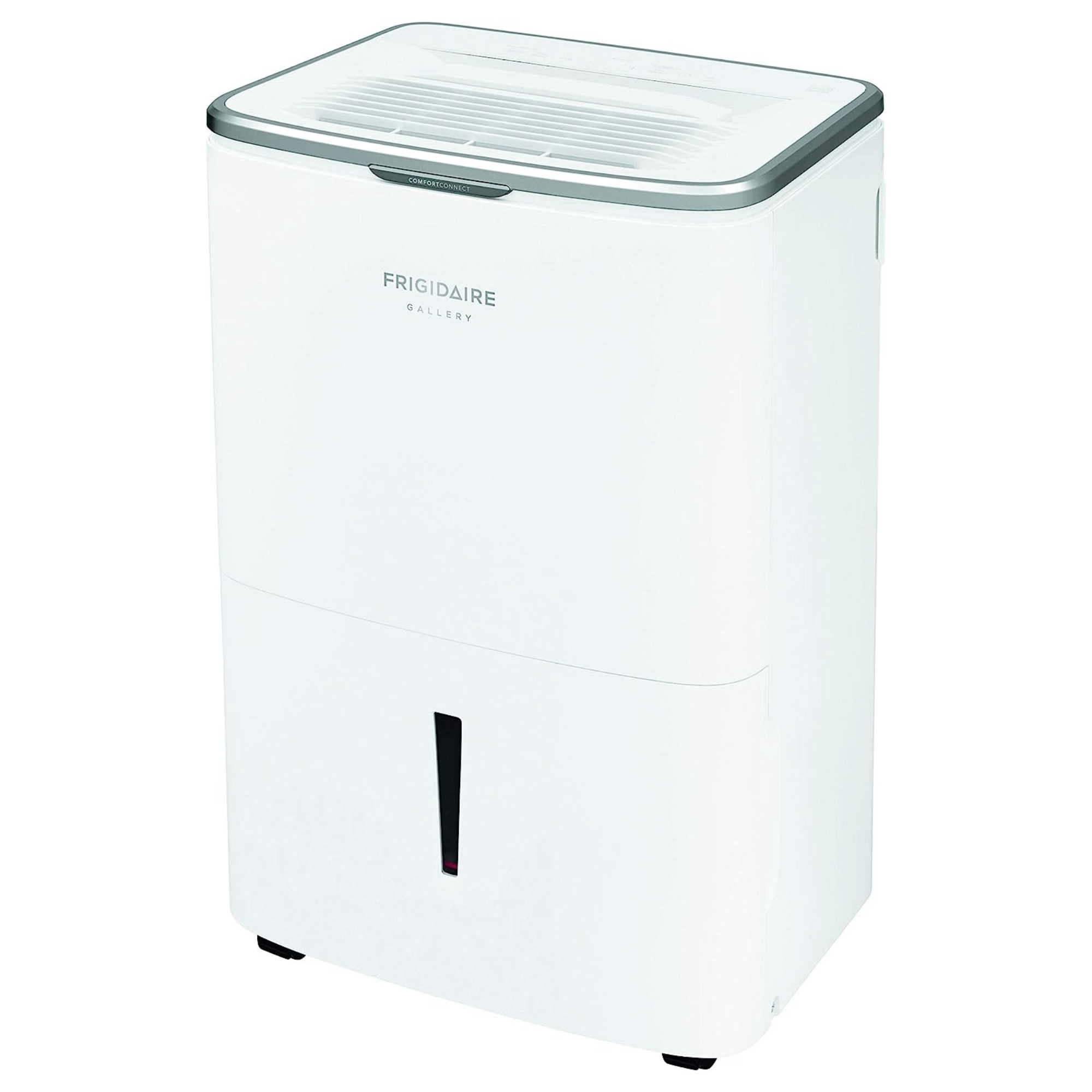
We've just reviewed this Frigidaire Gallery Dehumidifier, and awarded it 4.5 stars thanks to its comprehensive feature set. You can set desired humidity levels, change the fan speed, choose between auto, quiet and dry mode, and connect via an app. Plus, it does a great job at its core function of dehumidifying
Compare the differences between dehumidifiers vs air purifiers, where we go into more detail on the benefits of each. And for more air quality help, consider one of the best air purifiers.
Sign up to the Homes & Gardens newsletter
Design expertise in your inbox – from inspiring decorating ideas and beautiful celebrity homes to practical gardening advice and shopping round-ups.

Dan is the Home Tech Editor for Homes & Gardens, covering all things cleaning, smart home, sound and air treatment across the Solved section. Having worked for Future PLC since July 2023, Dan was previously the Features Editor for Top Ten Reviews and looked after the wide variety of home and outdoor content across the site, but their writing about homes, gardens, tech and products started back in 2021 on brands like BBC Science Focus, YourHomeStyle and Gardens Illustrated.
They have spent more than 200 hours testing and reviewing vacuums for Homes & Gardens, and have even visited Dyson's engineering labs for the full low-down of the ins and outs of our trusty cleaners.
Dan has a BA in Philosophy and an MA in Magazine Journalism. Outside of work, you'll find them at gigs and art galleries, cycling somewhere scenic, or cooking up something good in the kitchen.
-
 How to clean a patio – 6 different methods, and when you must use a chemical cleaning agent
How to clean a patio – 6 different methods, and when you must use a chemical cleaning agentFrom manual scrubbing, natural solutions or calling in the pros, industry experts reveal the benefits and considerations of each method
By Andy van Terheyden Published
-
 Kris Jenner's favorite air fryer, the Ninja Crispi, is the perfect small kitchen solution – it deserves a place on the most compact of countertops
Kris Jenner's favorite air fryer, the Ninja Crispi, is the perfect small kitchen solution – it deserves a place on the most compact of countertopsKris approves of this compact yet powerful air fryer, and so do our own kitchen appliance experts, praising it for its multifunctionality
By Hannah Ziegler Published
-
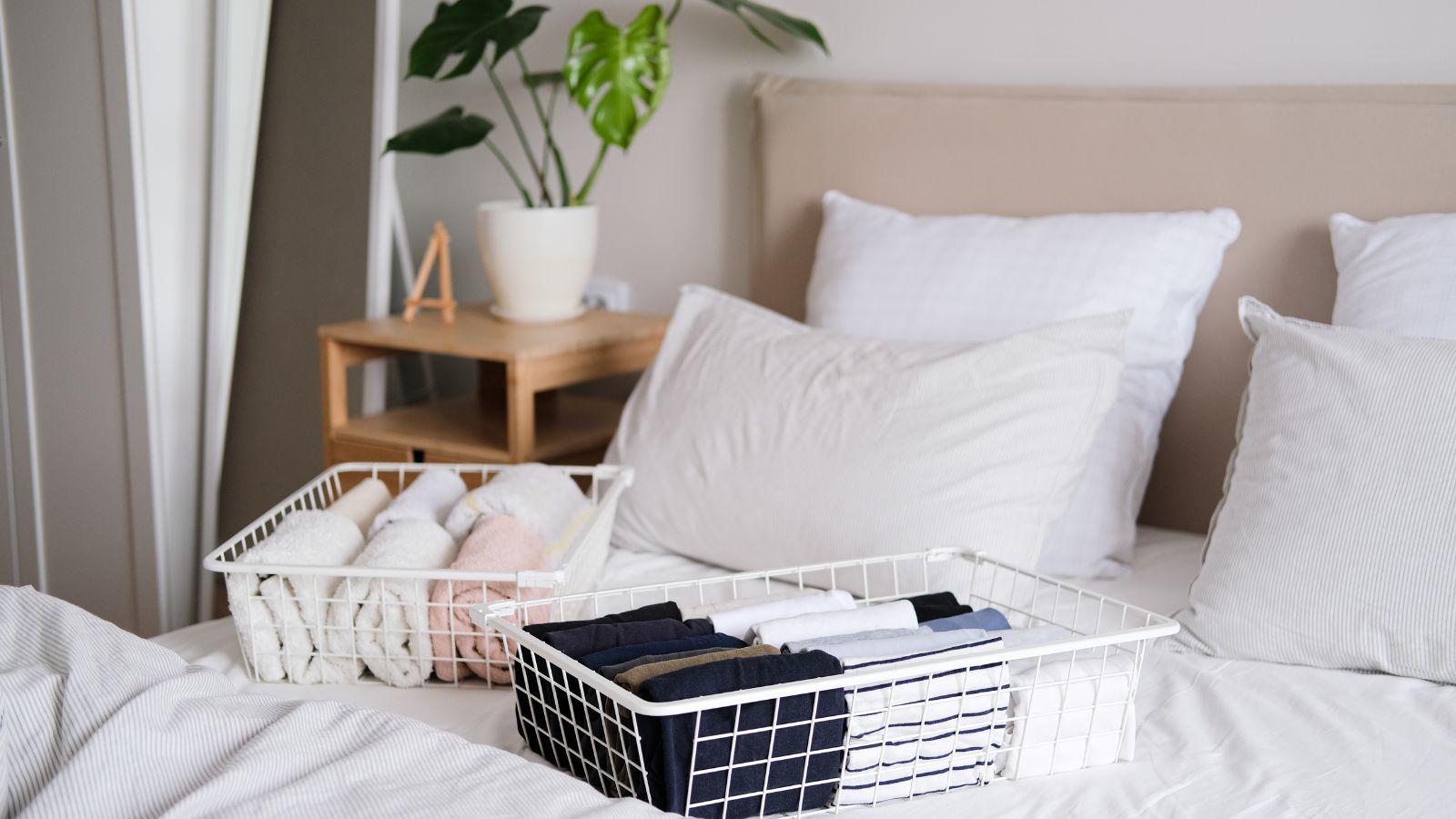 The 6 essential things professional organizers swear by to keep their rooms organized
The 6 essential things professional organizers swear by to keep their rooms organizedKeep your space streamlined too with these expert-approved buys
By Chiana Dickson Published
-
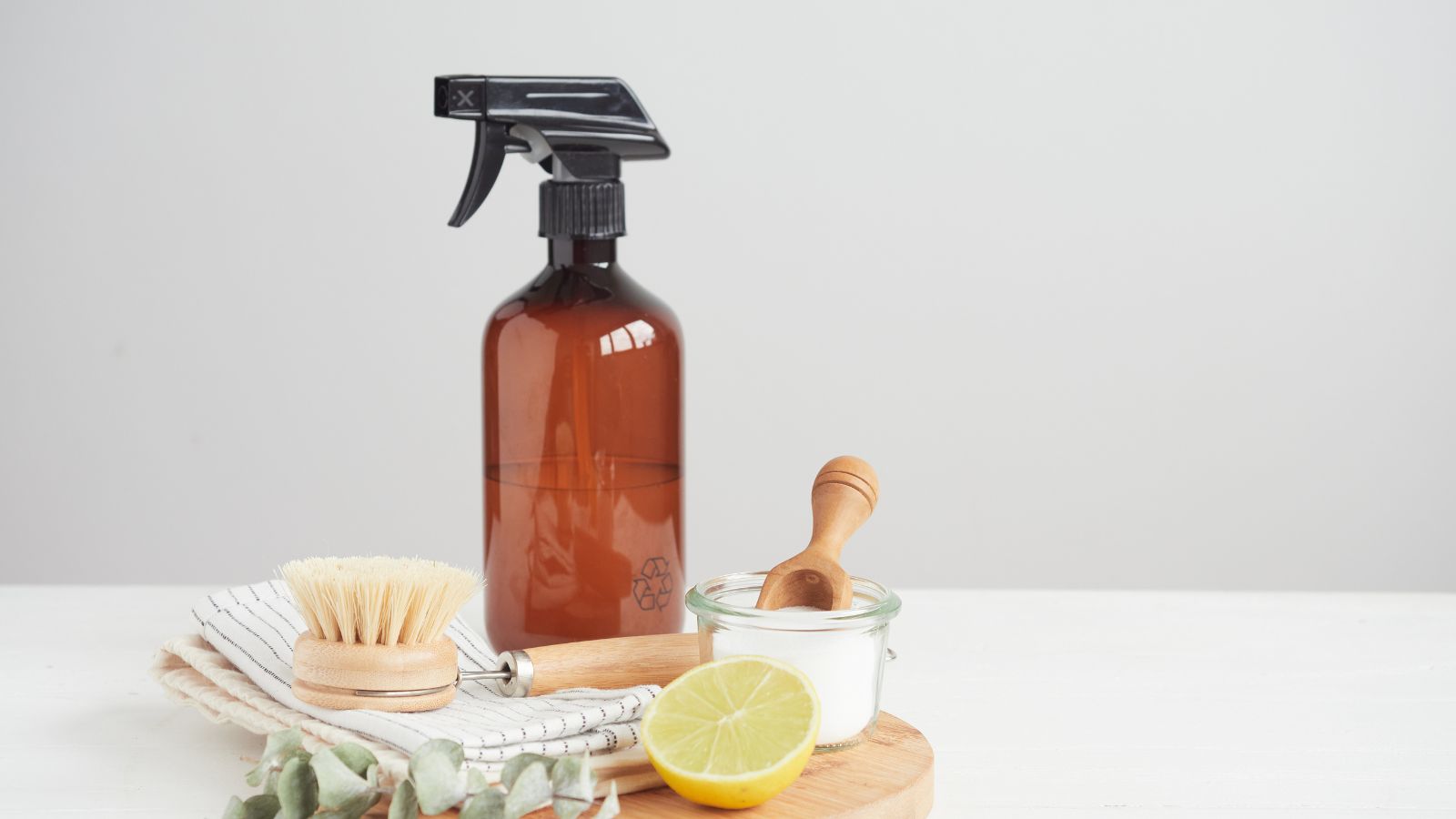 6 things you can clean with citric acid around the house – plus, it's eco-friendly and reduces the need for harsh chemicals in your home
6 things you can clean with citric acid around the house – plus, it's eco-friendly and reduces the need for harsh chemicals in your homeProfessional cleaners love using this natural cleaner around the house
By Ottilie Blackhall Published
-
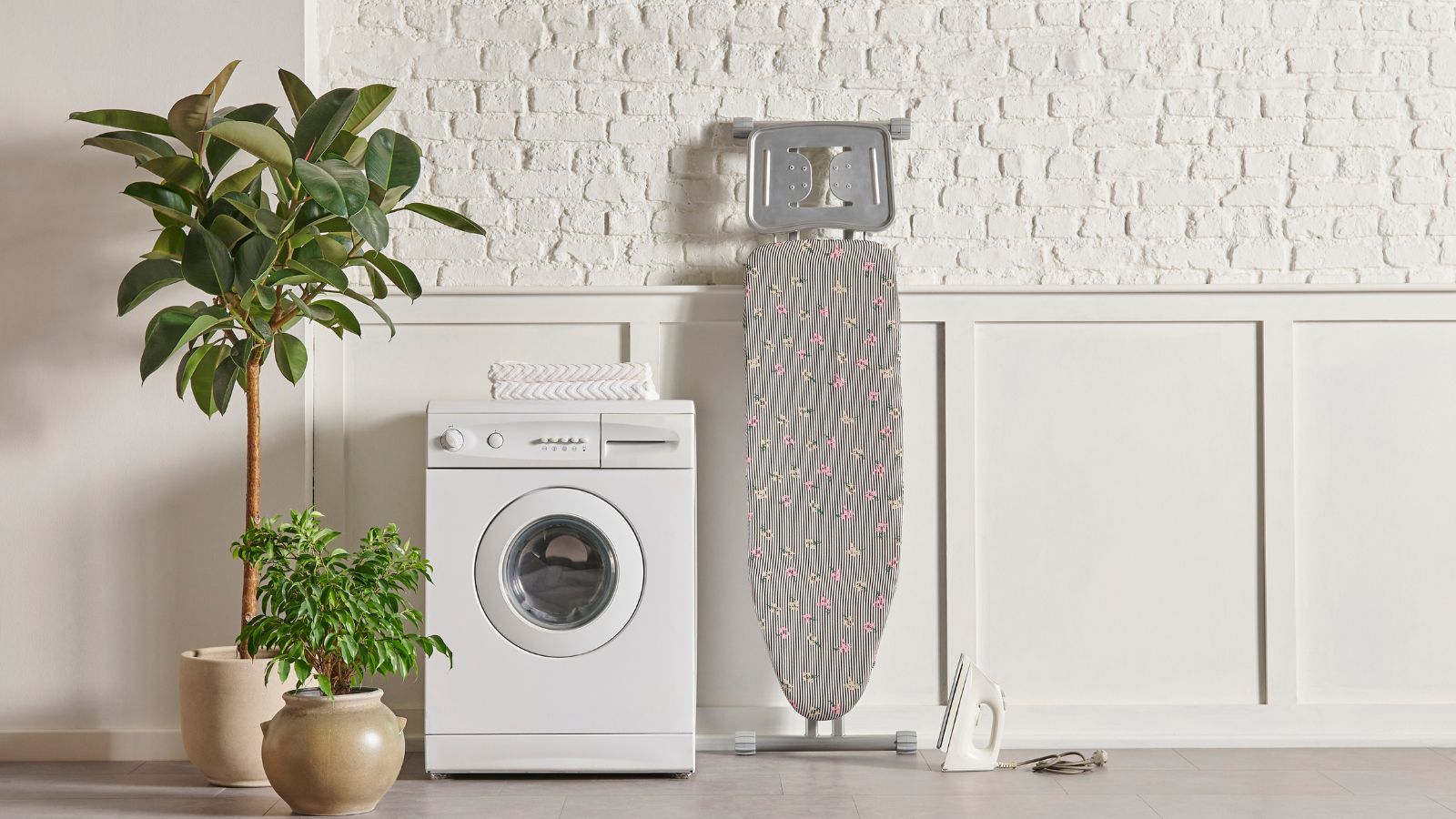 Can silk go in the dryer? Laundry pros say it could be a costly mistake, leading to warping and shrinking
Can silk go in the dryer? Laundry pros say it could be a costly mistake, leading to warping and shrinkingAvoid this drying blooper to protect your silk bedding and clothing, experts urge
By Chiana Dickson Published
-
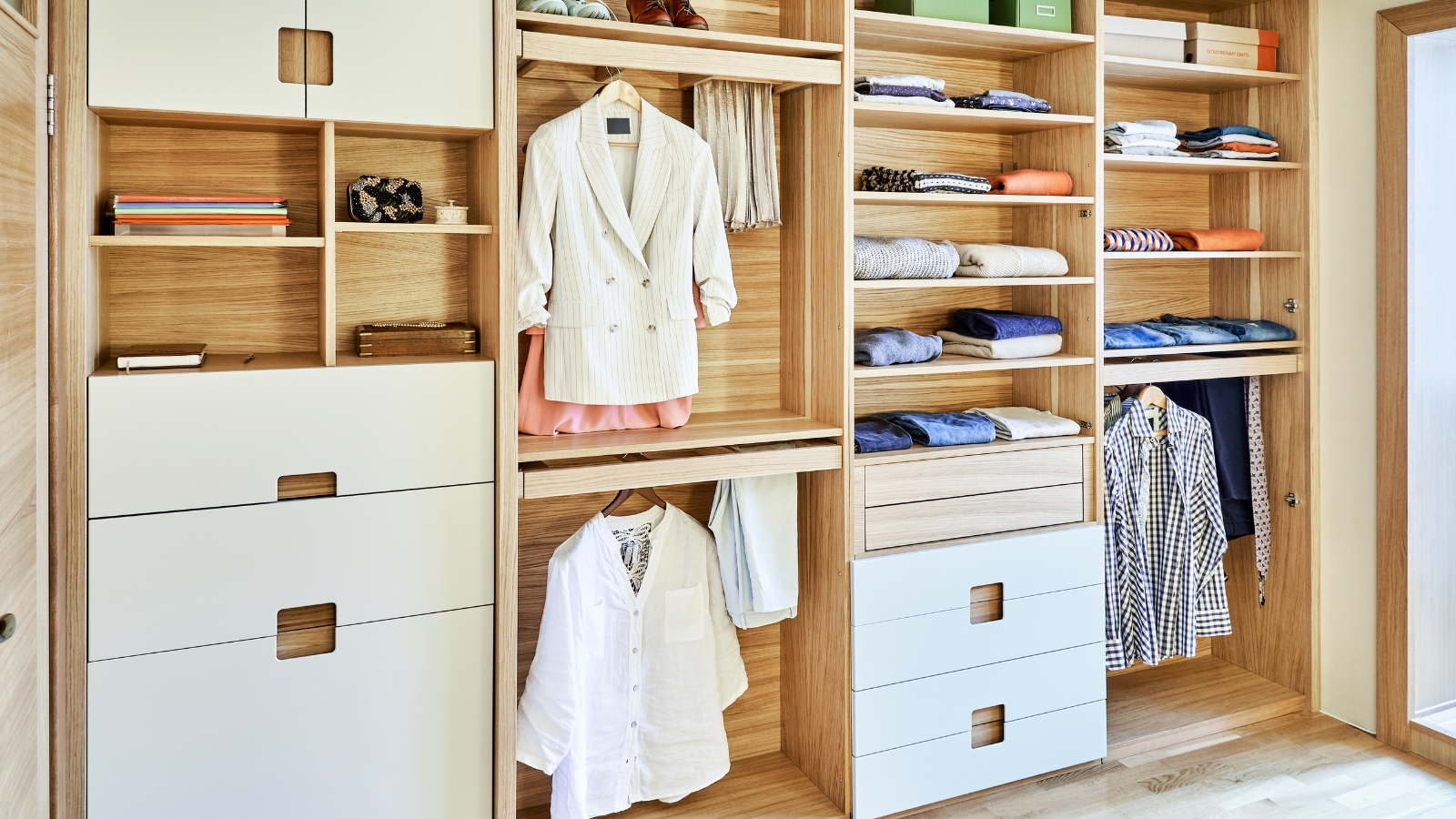 5 expert steps to organize a small walk-in closet – and how you can keep it that way for good
5 expert steps to organize a small walk-in closet – and how you can keep it that way for goodWith these organizer-approved tips, even the smallest of closets can be functional and beautiful
By Ottilie Blackhall Published
-
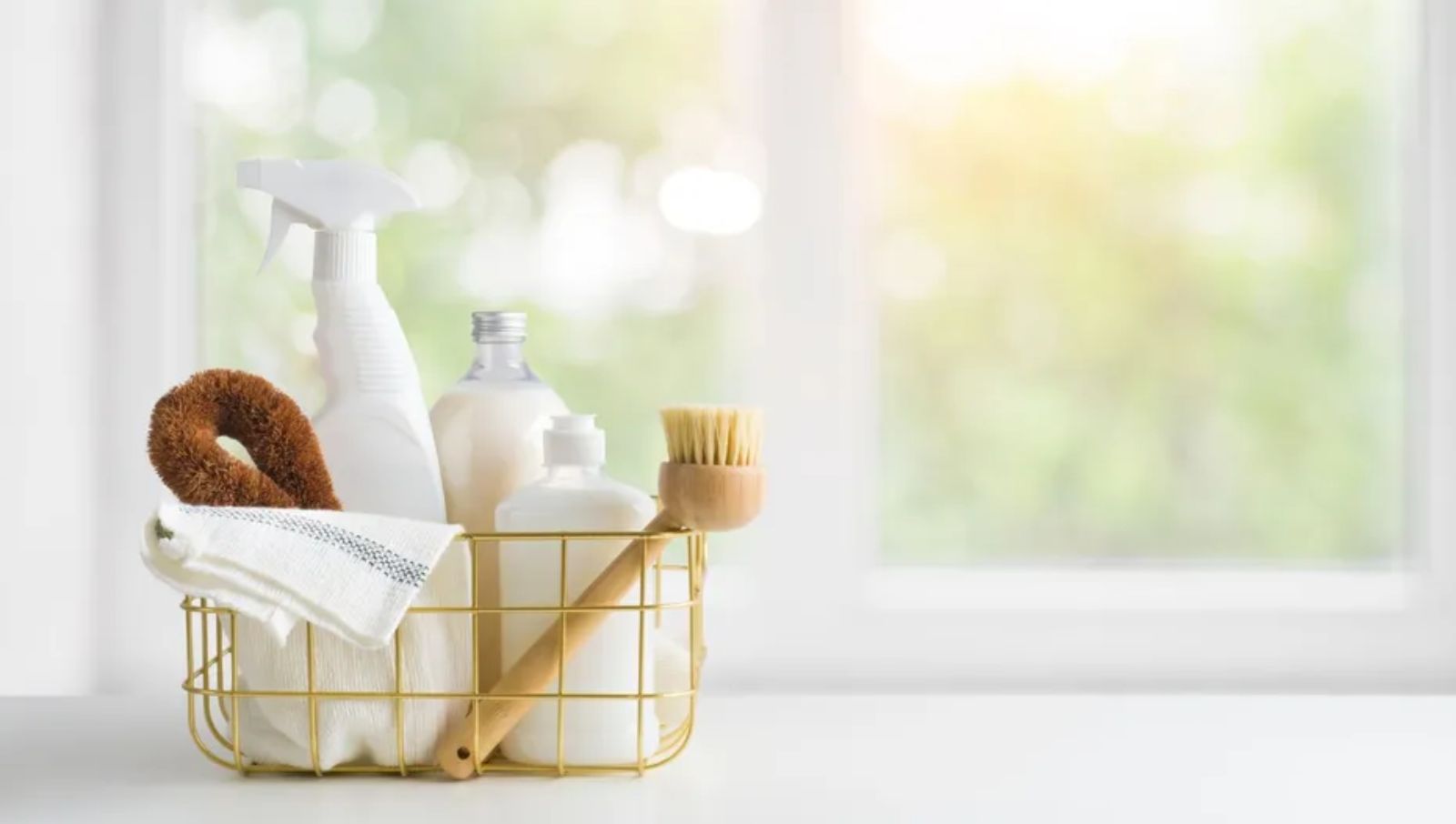 The 4 purchases professional cleaners always regret – pros reveal what's a waste of money and where to spend instead
The 4 purchases professional cleaners always regret – pros reveal what's a waste of money and where to spend insteadExperts warn off cleaning supplies that sound like a good idea but will actually make the task harder
By Chiana Dickson Published
-
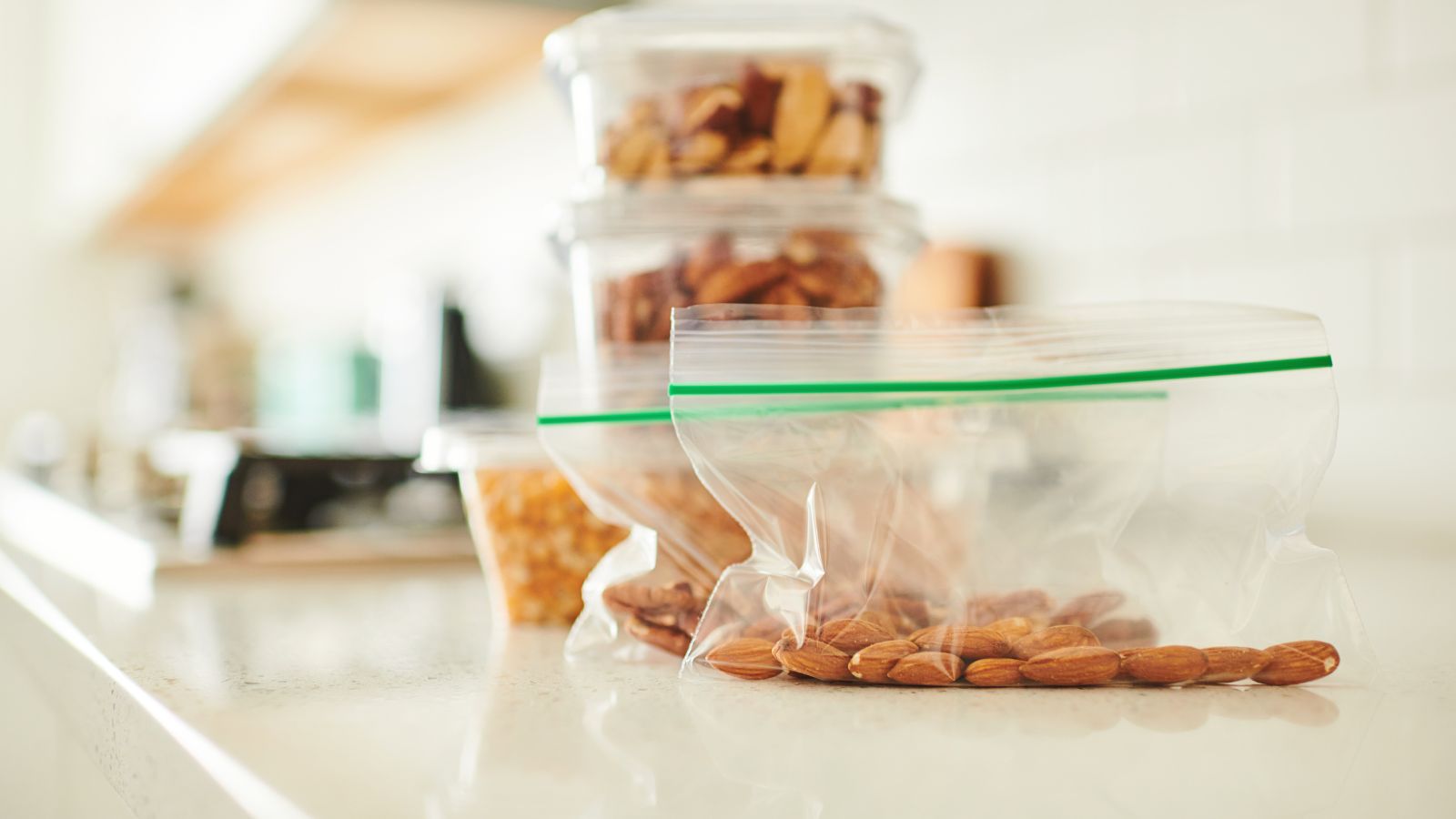 Experts reveal 8 surprising uses for Ziploc bags around your home that are cost-effective and clever
Experts reveal 8 surprising uses for Ziploc bags around your home that are cost-effective and cleverZiploc bags can be used in many ways from cleaning crayon marks to filing
By Ottilie Blackhall Published
-
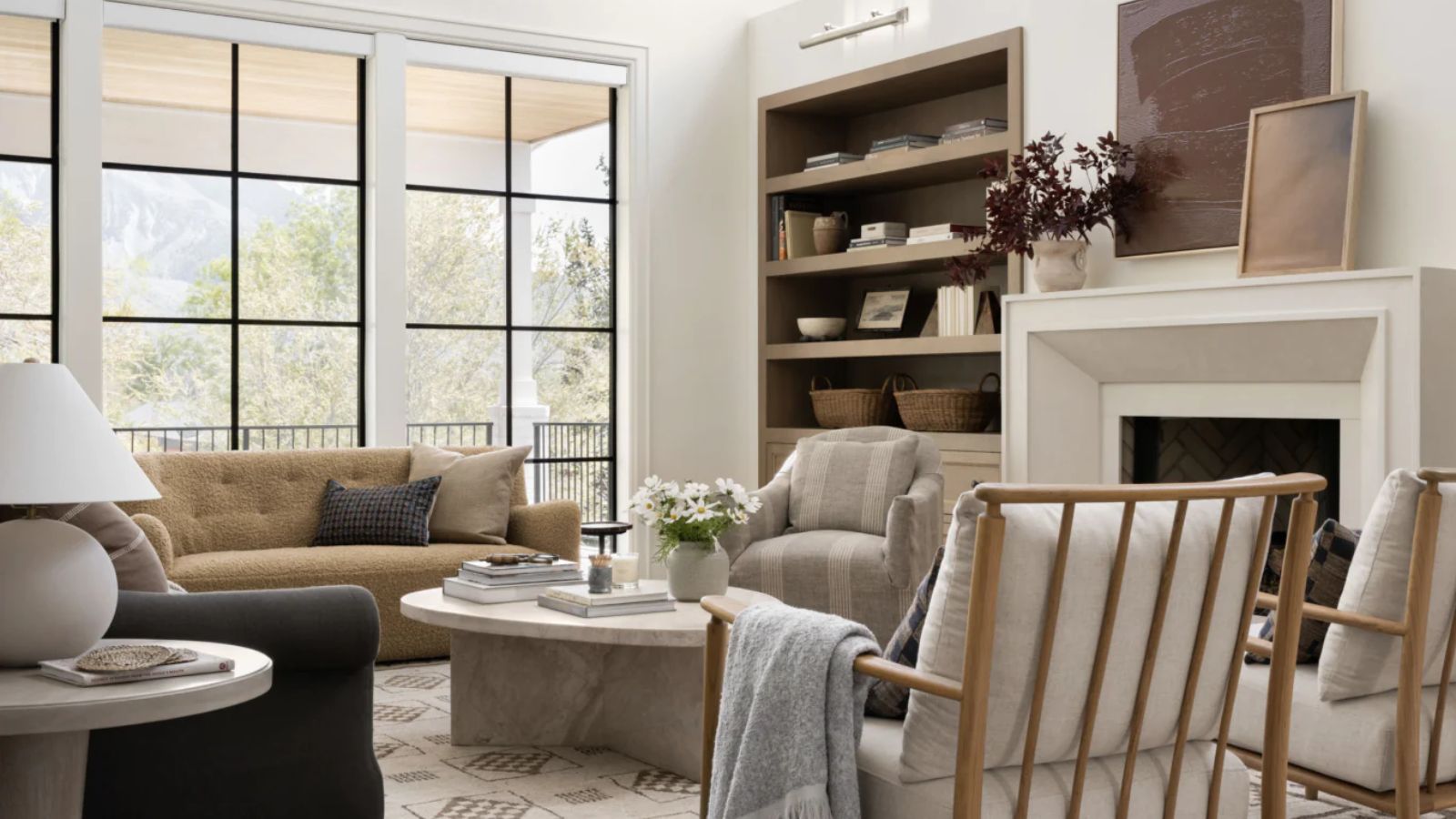 Professional organizers won't leave Walmart without these 6 items
Professional organizers won't leave Walmart without these 6 itemsElevate your home's storage with these expert-approved favorites
By Ottilie Blackhall Published
-
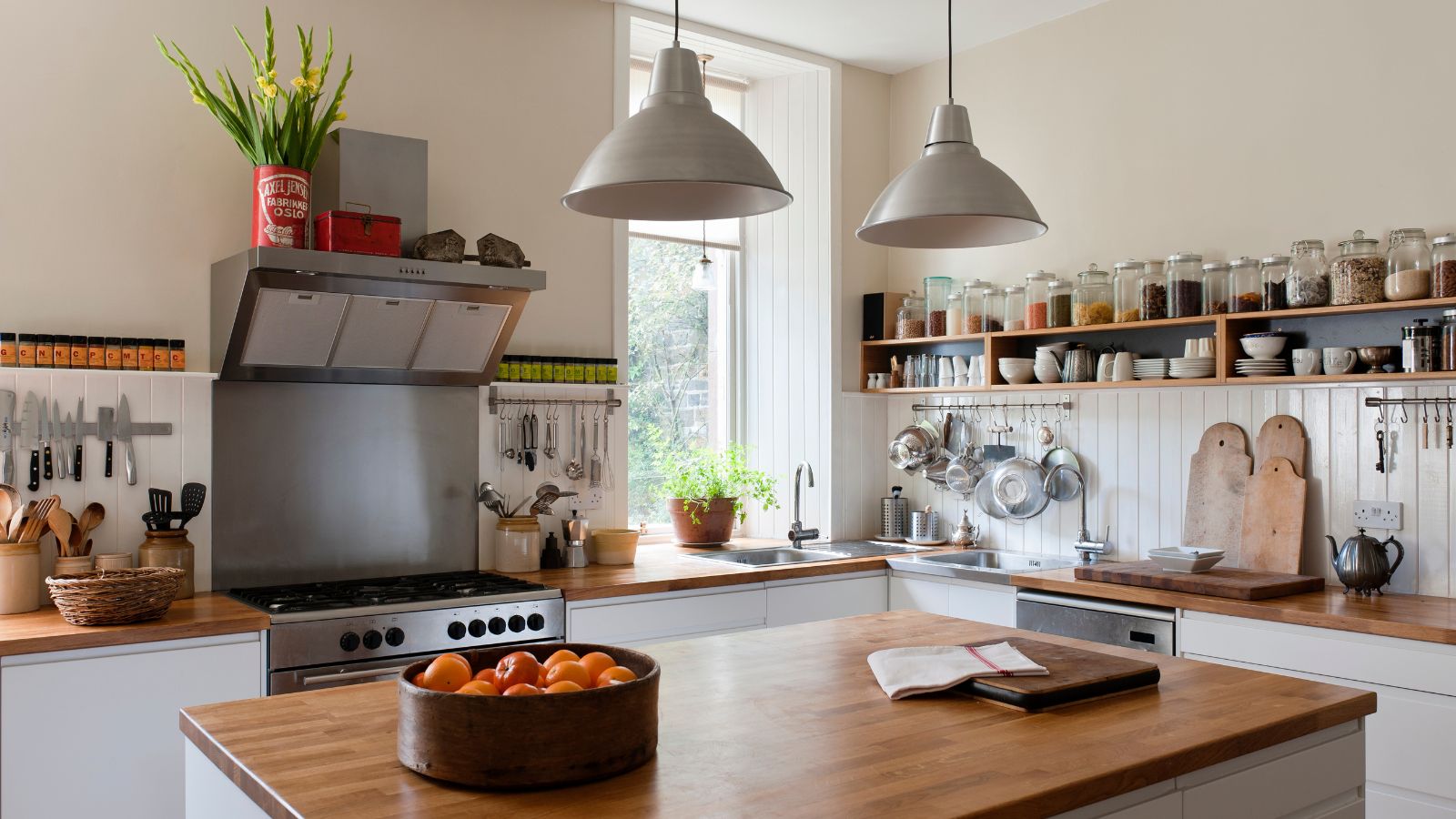 Experts reveal the 8 warning signs it's time to replace your hazardous old appliances – and what you definitely shouldn't delay or ignore
Experts reveal the 8 warning signs it's time to replace your hazardous old appliances – and what you definitely shouldn't delay or ignoreIt's time for an upgrade if you notice any of these alarming signs
By Ottilie Blackhall Published
